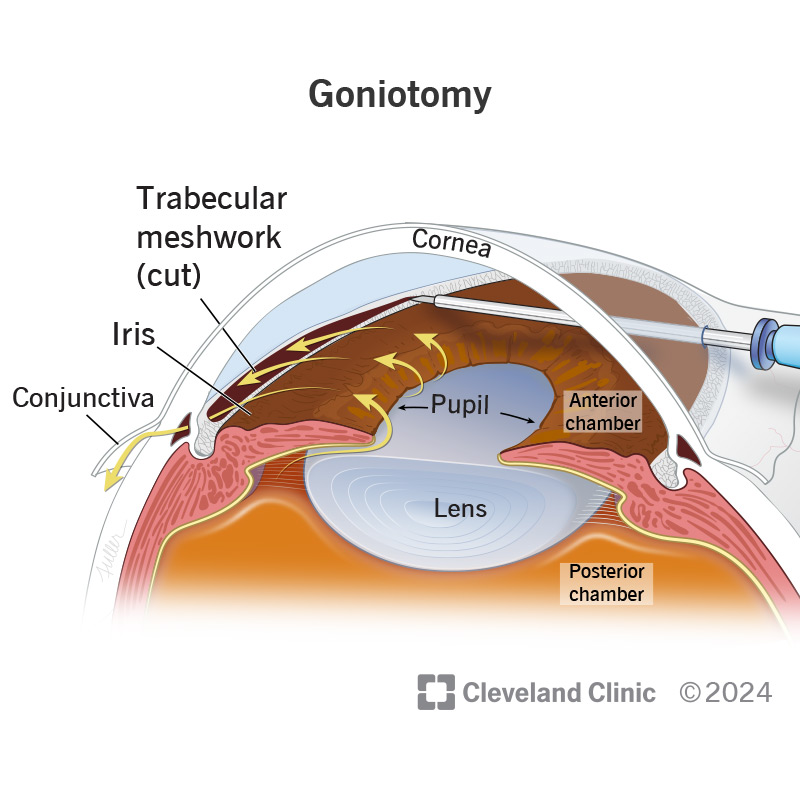

Historically used to treat glaucoma in children, this surgical procedure is growing increasingly common among adults.
Goniotomy is a minimally invasive surgical procedure designed to treat certain types of glaucoma by improving the eye’s natural fluid drainage. While it was originally developed for pediatric patients, it is now used in adults as well, particularly with the development of advanced surgical instruments and visualization tools. The goal of goniotomy is to lower intraocular pressure (IOP), a key factor in glaucoma progression, by creating openings in the eye’s drainage tissue to allow fluid to flow more freely.*
Goniotomy involves making small incisions in the trabecular meshwork—the eye’s drainage structure located near the base of the cornea. The surgeon uses a device called a gonioscope to view the angle where the iris and cornea meet, guiding the incision with precision. This helps:
The procedure typically takes less than 15 minutes and is done under local or general anesthesia. Goniotomy is classified as a type of microinvasive glaucoma surgery (MIGS), which is known for being less traumatic to the eye than traditional surgeries such as trabeculectomy or glaucoma drainage implants.

Patients often experience mild side effects after goniotomy, such as temporary discomfort or redness. These symptoms usually resolve within a few days. Recovery is generally quicker than with more invasive procedures, and the risk of complications is comparatively low. Postoperative care includes the use of anti-inflammatory or antibiotic eye drops, and follow-up visits are necessary to monitor eye pressure and healing.
Studies and clinical use have shown that goniotomy can effectively reduce IOP and, in some cases, reduce the need for ongoing glaucoma medications. Its effectiveness can vary, however, depending on individual patient factors, including the type and severity of glaucoma.
Goniotomy may be recommended for people with mild to moderate open-angle glaucoma who have not responded well to medications or laser treatments. It may also be considered in combination with cataract surgery to enhance outcomes.
Keep in mind that not all glaucoma patients are good candidates for goniotomy. A thorough evaluation by an ophthalmologist is necessary to determine whether this procedure is appropriate for you.
*Cleveland Clinic. (2024, August 6). Gioniotomy. https://my.clevelandclinic.org/health/procedures/goniotomy
To ensure that we always provide you with high-quality, reliable information, Responsum Health closely vets all sources. We do not, however, endorse or recommend any specific providers, treatments, or products, and the use of a given source does not imply an endorsement of any provider, treatment, medication, procedure, or device discussed within.
Source: {{articlecontent.article.sourceName}}
Receive daily updated expert-reviewed article summaries. Everything you need to know from discoveries, treatments, and living tips!
Already a Responsum member?
Available for Apple iOS and Android
Add Comments
Cancel